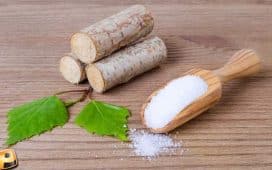Last Updated on September 3, 2017
A Maryland businessman got tired of hearing television chefs mention “kosher salt” in recipe after recipe.  So what did he do?  Change the channel?  Find something else to watch?
Of course not.  That’d be too easy.
He’s developing and selling a Christian variety of salt instead.  Blessed Christians Salt is set to go on sale within a week or so.  Its distributors describe it as “sea salt that’s been blessed by an Episcopal priest.
The plan is that a portion of sales — how big or small a portion remains to be seen — would be donated to Christian charities.
The big question here isn’t what a Christian who happens not to be Episocopal should do when making a purchase from the salt section; it’s whether or not its maker ever bothered to figure out what “kosher” really means when used to describe salt.
“Rabbi Sholem Fishbane, kosher administrator for the Chicago Rabbinical Council, said marketing Christian salt as an alternative to kosher salt reflects, at best, ignorance about Jewish dietary laws. He said all salt is inherently kosher because it occurs naturally and requires little or no processing.
“Certified kosher foods are not blessed by rabbis but examined by them to ensure that the food and its processing conform with Biblical passages regarding food preparation and consumption, Fishbane said.
“He said coarse-grained kosher salt is named for the way in which it was traditionally used – to draw blood from freshly butchered meat, because Jewish law prohibits consuming blood. Chefs often favor kosher salt because it’s crunchy and easy to pinch.”
If you’re like the average consumer, what you have in that little salt shaker on your dining room table is neither kosher salt nor sea salt.  It’s more likely to be table salt, which is refined and has a smaller grain and is usually iodized, which means the mineral iodine, an essential nutrient, has been added.
I buy Iodized table salt.  If I were to need kosher salt, I’d probably buy it, but it’s just as likely proceed with the table salt.  Maybe you could taste a difference, but I doubt it.
At least, not the way I cook.
As a Christian, I find nothing remotely offensive about the name kosher salt, and I don’t see any need to buy a “Christianized” condiment.
Morton’s is good enough for me.  I don’t think God would mind one bit.  Then again, I’m no expert on God’s table, so take my stand with a grain of salt.

















There’s a couple of disturbing things here. The first is, as you say, that someone felt it necessary to reply to, or compete against “Kosher salt.” That is typical right wing exclusionary behaviour, and reflects the worst divisive nature of religion. I strongly believe that if Jesus knew the things that were being done in his name, he’d roll over in his grave.
(Oh, wait, he isn’t in his grave, is he?)
The second thing is the fact that “blessing” an inanimate object is seen by people as giving it some kind of added value. So this “Christian” salt that has been “blessed” by some Pastor for hire, will be more expensive than regular salt, but the deluded will buy it anyway, because they’ll think it brings them closer to God.
(Which, given a heavy enough usage, it might actually do – but so would regular salt.)
It seems to me that this kind of co-opting of religion as a sales tool was also denounced – somewhat vehemently if I recall – by Christ.